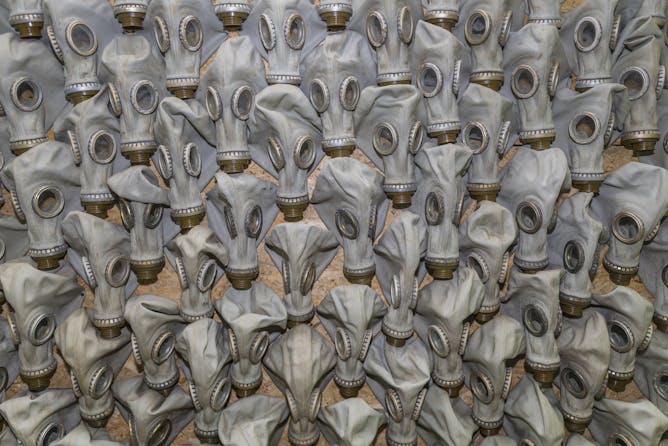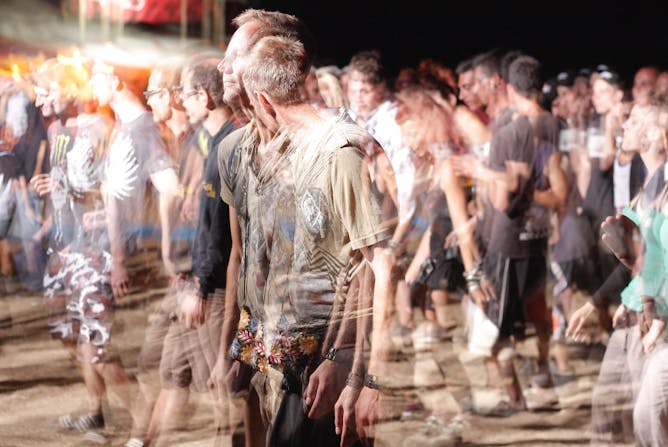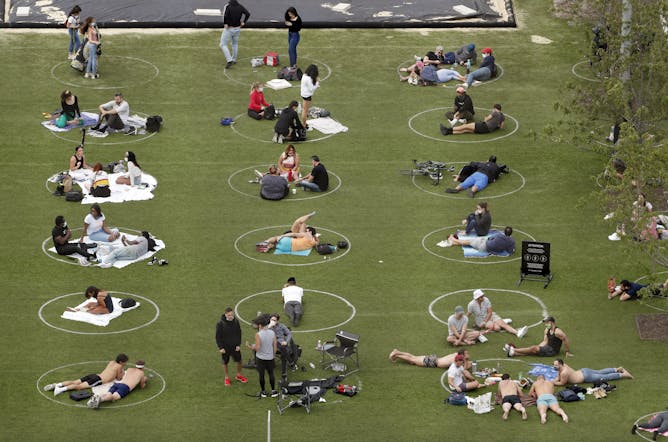|
As a parent and associate professor of ecology and evolutionary biology, Megan Frederickson wondered how other academics were handling the challenges posed by parenting, attending to domestic duties and completing academic tasks, including publishing papers. She was also curious about the pandemic's effect on male and female researchers, so she conducted a simple experiment: she downloaded submission data and used software to analyze the gender of author names. Today in The Conversation Canada, the University of Toronto academic tells us that submissions from men were growing at a faster rate than submissions from women, reflecting the existing gender disparity for women researchers in STEM.
Also today:
Regards,
|

Mothers are feeling the burn of having to both work and take on most parenting duties.
(Shutterstock)
Megan Frederickson, University of Toronto
As schools and daycares are closed because of the coronavirus pandemic, academic mothers are finding themselves less able to conduct research and write articles.
|

The global disruption caused the the coronavirus pandemic contains lessons in combatting bioterrorism.
(Shutterstock)
Trushar R. Patel, University of Lethbridge; Michael Hilary D'Souza, University of Lethbridge
As the COVID-19 pandemic exacerbates global economic and health insecurities, opportunities to emulate the pandemic's effects with bioweapons affords terrorists a new model.
|

Leaving predictability and entering into uncertainty is a threshold to transformation.
(Unsplash)
Ron Shore, Queen's University, Ontario
Psychedelics can help reset the brain, shaking it out of old patterns. The current state of uncertainty could have similar impacts - a metaphorical psychedelic dose - for new insights.
|

Randy Rainbow’s ‘A Spoonful of Clorox’ is a savage attack on U.S. President Trump, with a full spoon of saccharine.
YouTube/Randy Rainbow
Julia Creet, York University, Canada
We all need reassurance and humour in the coronavirus pandemic. A best-of list of both biting satire and silly parody to beat the quarantine blahs.
|

New York City park visitors got a little help social distancing.
AP Photo/Kathy Willens
Bryan Keogh, The Conversation
Our experts mull what it will take to keep people healthy, whether there should be optimism for a vaccine and how to fight lockdown fatigue.
|

QAnon, which fans the flames of wild and dangerous conspiracy theories, is being incorporated into some fringe religious movements.
Photo Illustration/The Conversation
Marc-André Argentino, Concordia University
The QAnon movement that's based on conspiracy theories is now being used by some charismatic Christians as a way to interpret the Bible. It's a dangerous mix of religion and false information.
|

A leader of the Three Percenters militia movement, Matt Marshall, speaks at an anti-lockdown protest, April 19, 2020 in Olympia, Washington.
Getty/Karen Ducey
Shannon M. Smith, College of Saint Benedict & Saint John's University
White supremacists' protests against COVID-19 lockdowns reflect the US history of political leaders encouraging white supremacist groups to challenge or overthrow democratic governments.
|

La chef du Parti libéral du Québec, Dominique Anglade, interroge le gouvernement alors que l'Assemblée nationale reprend ses travaux avec une participation limitée des députés, le 13 mai.
Première femme élue chef du PLQ, elle prend la tête d'un parti en très mauvaise posture.
La Presse Canadienne/Jacques Boissinot
Mireille Lalancette, Université du Québec à Trois-Rivières (UQTR); Anne-Marie Pilote, Université du Québec à Montréal (UQAM)
Première femme à prendre la tête du Parti libéral du Québec, Dominique Anglade accède à ce poste alors que l’avenir de ce parti est précaire et incertain.
|